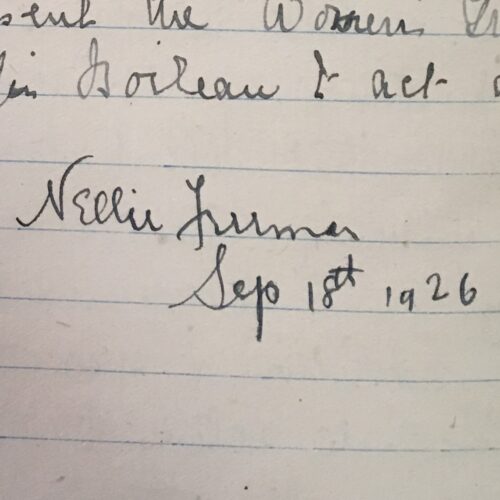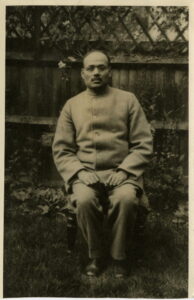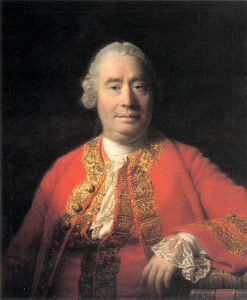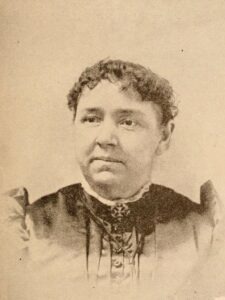

Nellie Freeman was an indefatigable organiser within the Ethical Union (today’s Humanists UK) for decades of her life. Beginning in the South London Ethical Society, Nellie was Secretary of the Ethical Union’s Council for twenty years, as well as being active in the Young People’s Group and for a host of other causes and activities.
On her death, the Ethical Record stated
Never was there a keener supporter of Ethical Societies. It is often said that no one is indispensable. It will be difficult to replace Miss Nellie Freeman.
Ellen (Nellie) Slous Freeman was born on 2 November 1863 in Camberwell, London, to Alfred Slous (a bootmaker) and Jane Freeman (née Green). She is recorded by the census of 1881 as being a ‘pupil teacher’, and worked for many subsequent years as an elementary school teacher, and later as a teaching assistant.
Freeman attended her first Ethical Society meeting at South Place Chapel in 1893, and from then on was a devoted member of the movement. As secretary of the South London Ethical Society, historian I.D. MacKillop noted, it was to her much of the group’s popularity was due, and he provides a few additional details about an otherwise little known life:
[The South London Ethical Society] owed much of its appeal to the personality of the socialist secretary, Nellie Slous Freeman, a gentle school teacher from a free-thinking family.
Over the next fifty years, Nellie was involved in numerous aspects of the Union’s activities, in addition to other liberal causes. As well as the South London Ethical Society, she gave her time to the Women’s, and Young People’s groups of the Ethical Union, her local branch of the Women’s Liberal Federation (which she helped to found), the Secular Education League, and the organisation of the Forest Group’s Rambles and Ethical Services. She also organised the Union’s popular Annual Weekend Conferences at High Leigh, Hoddesdon, which featured a host of talks, discussions, and activities.
As Gustav Spiller recalls in his history of The Ethical Movement in Great Britain, Nellie was active in both organisational and instructional spheres. Among the lessons for children delivered for the Moral Instruction Circle is listed ‘Miss N.Freeman: The Dignity of Labour, April 2, 1900’. Spiller also recalls her involvement in
The Young People’s Group of the Ethical Union [which] was founded on 15th November 1923, when about thirty young people were present. After about two years of experimenting, the Group invited Mr. H. Snell to be its President and Miss N. Freeman its Vice-President, in order to benefit by their mature counsel. This was a happy decision, and the Group has ever since published cheerful Annual Reports. ‘Youthful ardour and aged wisdom formed an irresistible combination. Miss Freeman, most especially, has regularly attended the Group meetings and has given of her best without obtruding herself.’
In 1938, the annual report of the Ethical Union describes a presentation made to Nellie Freeman on 3 July, ‘where a very happy gathering of over 150 members and friends from the Ethical Union, local Ethical Societies, the R.P.A., and the Positivist Society enjoyed a sociable atmosphere.’ Here, Horace J. Bridges, ‘explained that Miss Freeman’s friends wished to symbolize their appreciation of her work for the cause by presenting her with a cheque, and a tea service for use in the office.’ This cheque she ‘gratefully accepted’ as a contribution ‘to be used at her own discretion for any ethical work which she had at heart.’
In wartime, too, Freeman was specifically commended for her dedication to the Union and its cause. Again, the annual report records that:
The Council expresses its deep gratitude to Miss Freeman for her constant and devoted work as Hon. Sec. during one of the most difficult years in the history of the Ethical Union. Miss Freeman not only kept in touch with the members, but also gave encouragement and helpful advice to many individuals who consulted her about personal problems.
Her obituary, printed following her death two years later in the Ethical Record, also made reference to her wartime devotion:
She strove against all the difficulties imposed by the War and sought to carry out her plans, come what might. When the office of the Ethical Union was destroyed by enemy action in May, 1941, she quickly found neighbouring premises where with barely half the accommodation the work of the Union was continued.
Nellie Freeman died on 26 February 1943 at the age of 79. A note circulated to the Union informing them of her death noted her ‘long life devoted to the very last days to the work of the Movement.’ Her funeral was conducted by H.J. Blackham at the Forest Hill Crematorium on 4 March.
Despite plentiful mentions in the minutes of Ethical Union proceedings, Nellie Freeman represents one of the notable female figures within the movement doing vital but little remembered work within the societies and towards their wider aims. Her committed and lived humanism is evident in her active and unstinting support of the Ethical movement for four decades.

Life is a wonderful privilege. It imposes great duties. It demands the fulfilment of great tasks and the realisation of […]

Without any great effort of thought, I believe that I could, in an instant, propose other systems of cosmogony, which […]

Man for man in larger sense does what heaven fails to do. Sara A. Underwood, quoted by Rufus K. Noyes […]

Its main concern is with peace and security and with human welfare, in so far as they can be subserved […]